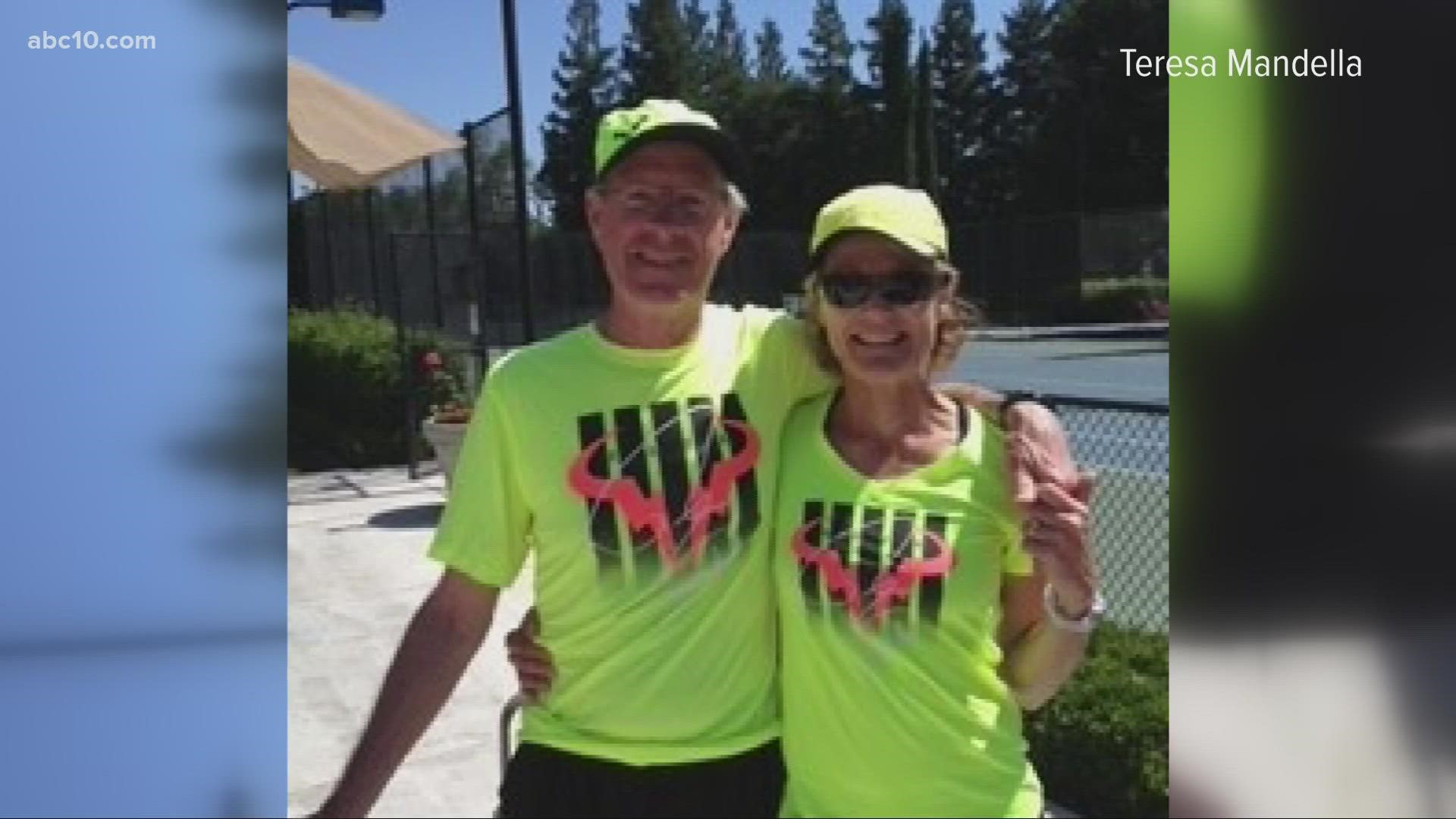SACRAMENTO, Calif. — A recent report from the California Department of Public Health and Alzheimer's Association projects the number of people living in the state with Alzheimer's will double by 2040. This not only impacts those dealing with the disease but the many that will take on the role of caregiver in the coming years.
Stockton resident, caregiver and Northern California Northern Nevada Alzheimer's Association board member Teresa Mandella has been married to her husband Frank for 40 years. He was diagnosed 11 years ago, at the age of 61.
"I took care of him at home for seven years and four years ago, just through behavior changes where I felt my caregiving skills weren't up to par, I transitioned Frank to a memory care community," Mandella said.
The beginning of the pandemic was hard for Mandella. For two months she couldn't visit her husband at all. Eventually, the center allowed outdoor visits, but Mandella said getting off their routine caused her husband's health to decline.
"Near the end of the year of 2020, he really was losing the mobility to walk. He was being brought out to the fence with caregiver assistance," Mandella said. "He really never got out of the wheelchair again, and I attribute that to just the ability not walking as much as we both did and the caregivers were very busy with their tasks and probably limited.
"I really had a routine going as well, and the folks the family members the residents were were like my second family, and so that's been torn away. Not only from my husband but just those relationships that had been built over four years and. I mean it. It sort of created a depression in myself and but I just pushed on knowing that this hopefully was temporary," she said.
Protocols have eased in care facilities but they're still strict. Mandella has to provide a negative COVID-19 test, but she can spend time with Frank again. Caregiving is not an easy task and as more people have to assume the role, the Alzheimer's Association wants to help them get prepared.
"We need to do a better job of destigmatizing the disease so that communities really understand what that impact is going to look like," Government Affairs Director for California and the Alzheimer's Association Jared Giarusso said.
There are many options for caregiver help and support. One of those is the Alzheimer's Association 24/7 helpline 1-800-272-3900. Its open 24/7 and staffed with professionals who will keep your information confidential.



















